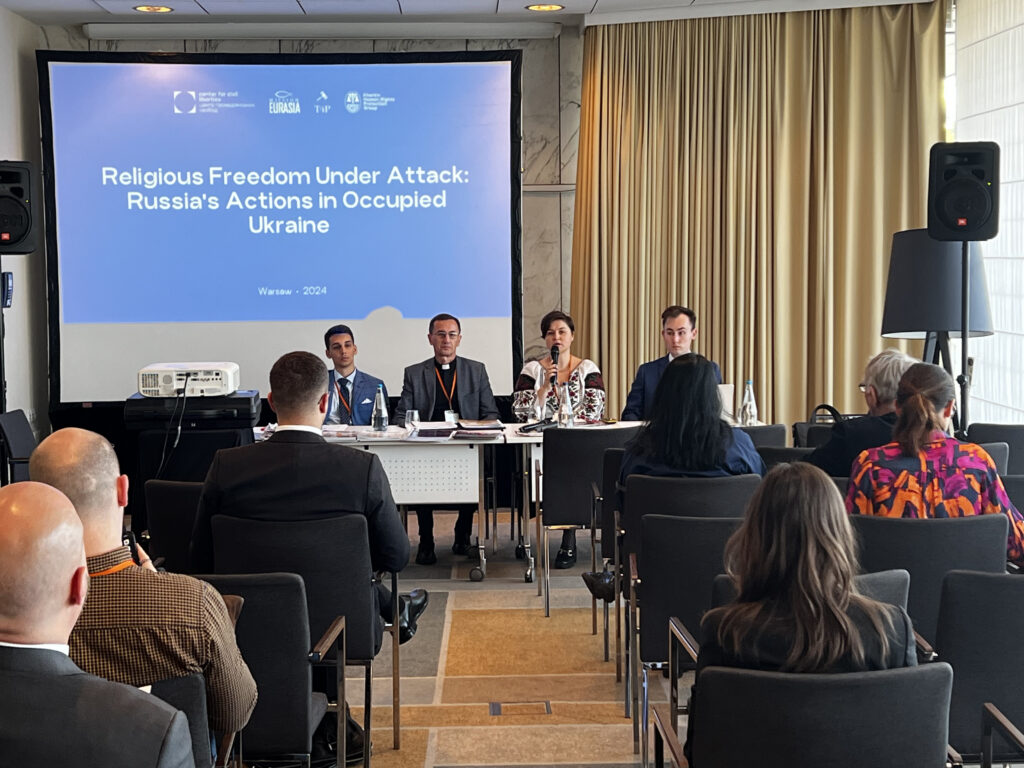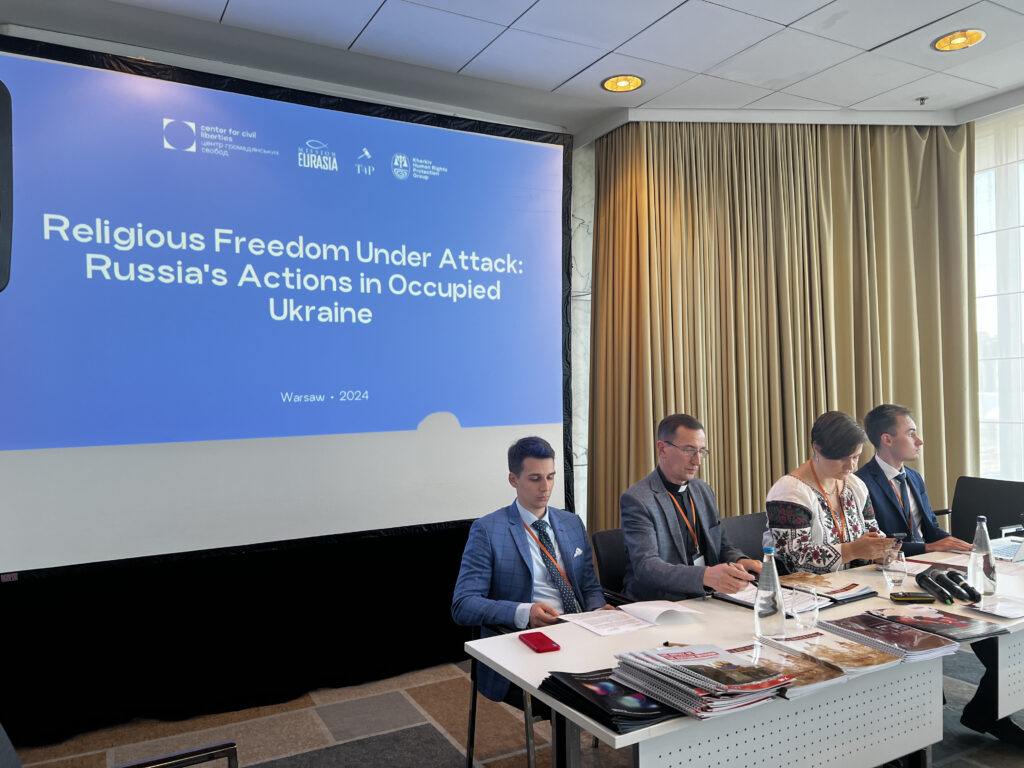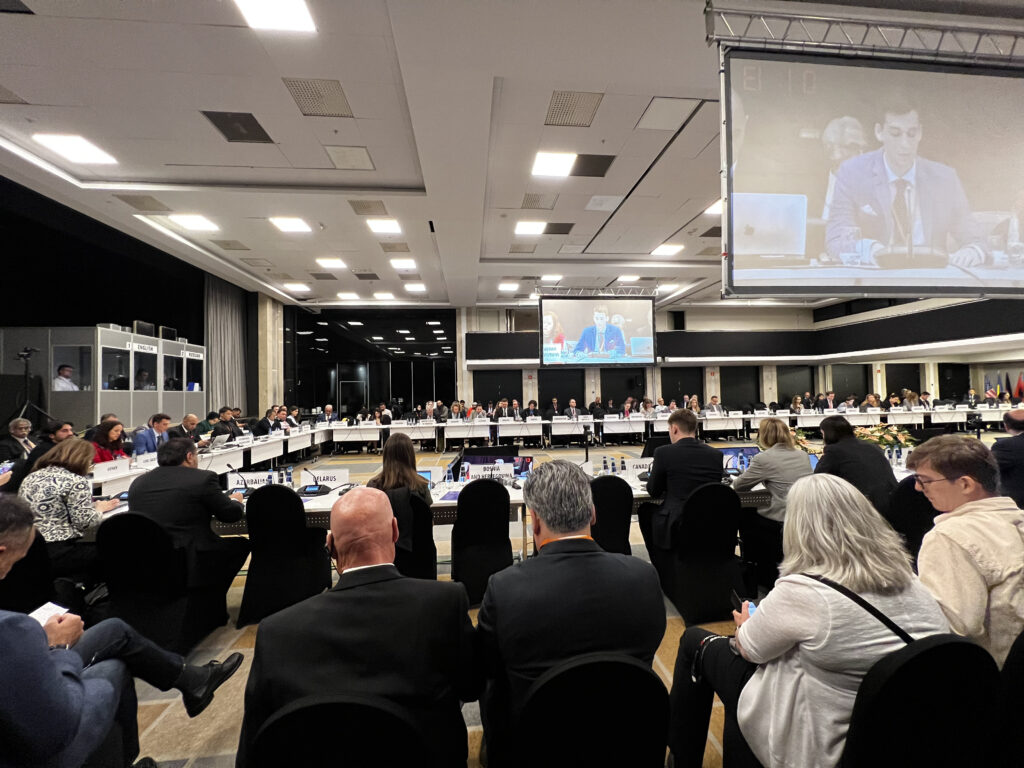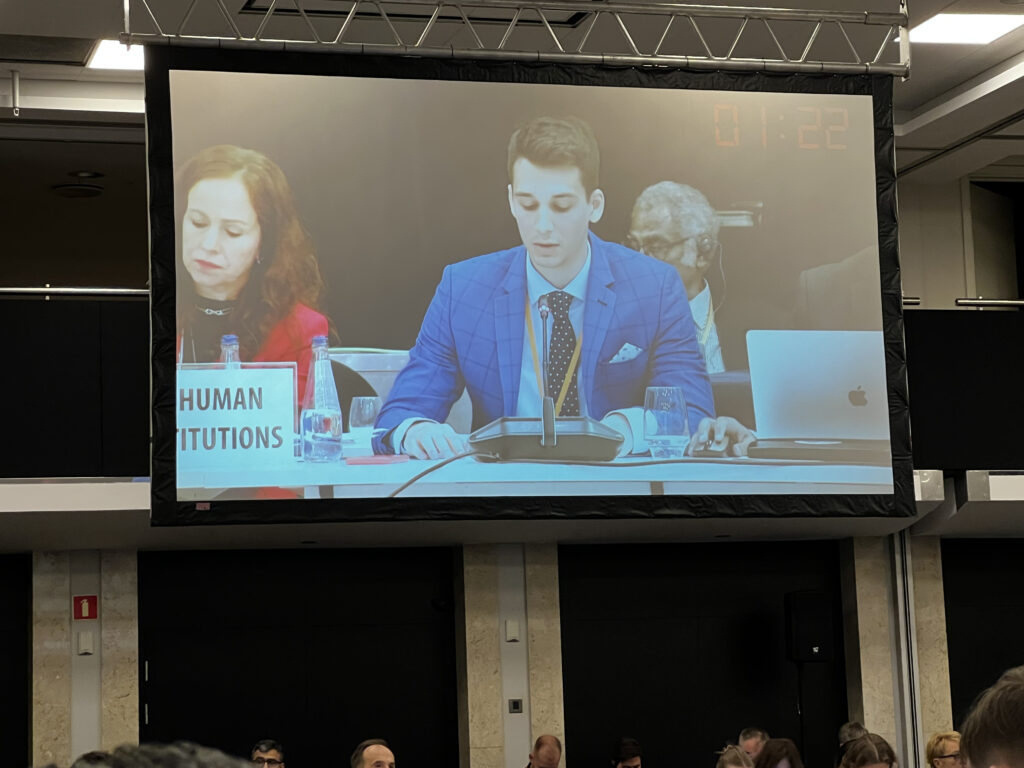«Like me, many priests and pastors have been persecuted». A side event on the restriction of religious freedom at the Warsaw Human Dimension Conference
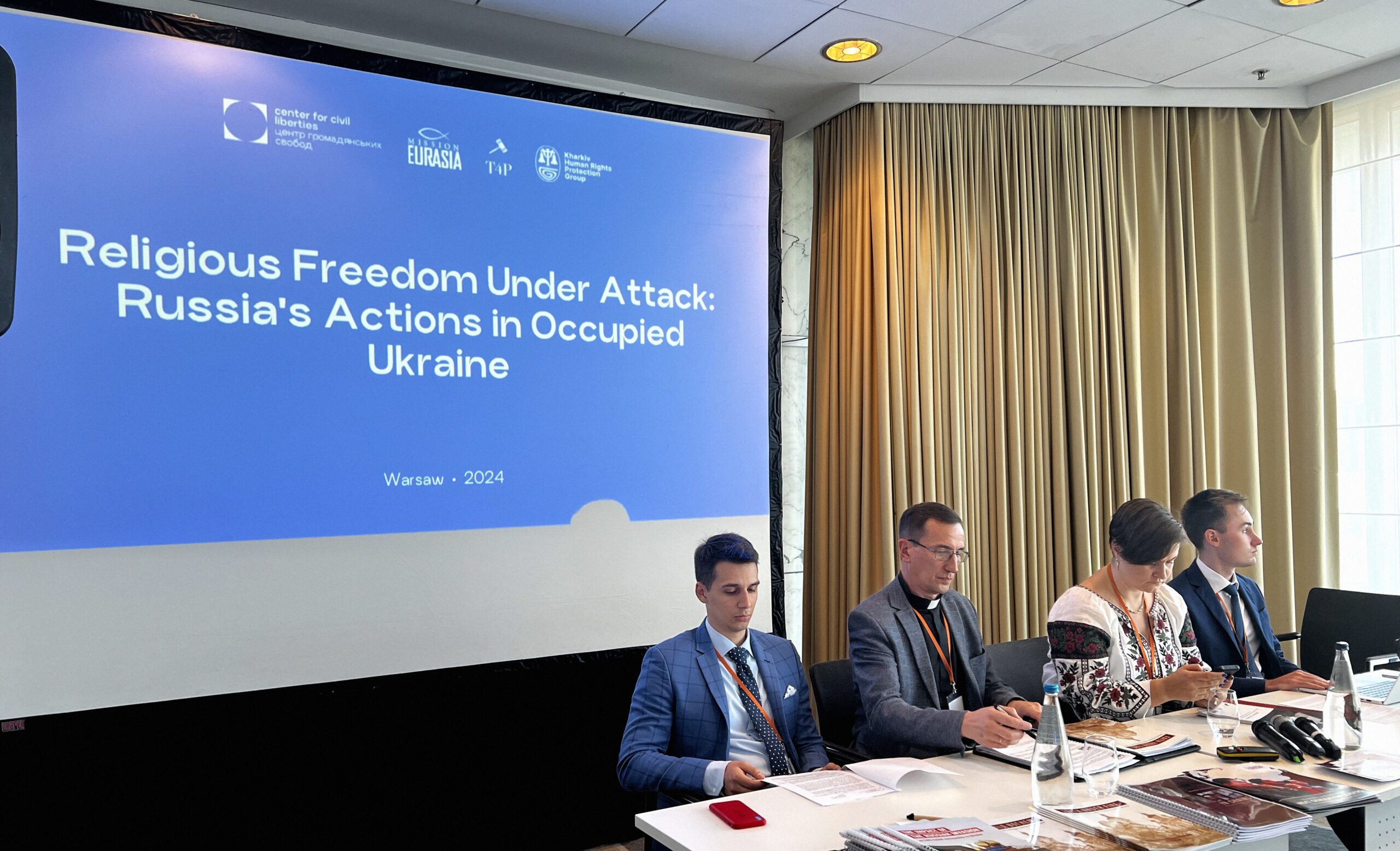
On 7 October, a side-event on the restriction of religious freedom took place in Warsaw during the 2024 Warsaw Human Dimension Conference. The event was moderated by Oleksandra Romantsova, Executive Director of the Centre for Civil Liberties, while Valentyn Serdiuk, the organisation’s legal analyst, was among the speakers. The event addressed the suppression of freedom of religion in the Russian-occupied Ukrainian territories.
From the very first months of the Russian invasion of Ukraine, which began in February 2014, religious communities of various denominations have fully experienced the cruelty and ruthlessness of Russia’s repressive policy in the occupied territories. Russian troops would target religious leaders and individual believers. Members of religious minorities were arbitrarily arrested, threatened, beaten, illegally imprisoned, tortured, and some were killed deliberately.
During the discussion, the Ukrainian speakers focused on large-scale religious repression and war crimes committed in the Russian-occupied territories of Ukraine. The purpose of the meeting was to merge forces in investigating these crimes, facilitate international judicial action and protect religious communities in conflict zones.
Other speakers included Mykola Komarovskyi, a lawyer with the Kharkiv Human Rights Protection Group; Mykhailo Brytsyn, Pastor of the Grace Church in Melitopol and Director of Mission Eurasia’s Department of Religious Freedom; and the Chairman of the Council of the religious centre ‘Union of Christian Churches of Ukraine’, who was abducted by the Russian military and held in a torture chamber. They, in particular, presented documented evidence of these violations, examining how the Russian authorities have used religious persecution as a tool in undermining Ukrainian identity and sovereignty.
‘We’ve managed to identify numerous violations committed against religious sites. These crimes primarily involve physical destruction and damage, such as missile strikes, kamikaze drone attacks, and artillery fire. Furthermore, we’ve documented numerous and widespread instances of plundering of religious sites by the Russian military, their shutdown and conversion to administrative facilities. On a number of occasions, the Russian army used church buildings and adjacent territories as military bases, presumably to cover its own positions.
‘As far as the total number of recorded cases is concerned, there were at least 630 documented episodes of unlawful acts against religious institutions as of 1 December 2023. Importantly, the number is much higher today, since in some instances, in particular where this has to do with collecting data from the occupied territories, information about specific incidents becomes available only after a significant delay. Some crimes will only come to light after the de-occupation of Ukrainian territories. All the above actions demonstrate the unquestionable evidence of the Russian Federation’s policy aimed at destroying religious sites in Ukraine,’ said Mykola Komarovskyi.
‘In 2022, our city was occupied by Russian troops. At first, the churches tried to continue their services. Being priests, we would gather people for prayer. We helped people with food, clothes, and medicine. However, the Russian occupation authorities were opposed to the operation of Ukrainian churches in the occupied territories. The arrests and interrogations of ministers ensued. The Russian military started seizing church buildings. The activities of most churches were banned.
‘For six months we continued our services in the occupied territory. Eventually, our church was seized by the Russian military. Right during the service, the soldiers came in, banned it, took everyone’s fingerprints, searched the church and our homes. Our church was the third in the city to be shut down by the Russians. So far, the Russians have closed 17 churches there. Only a few churches were left in such cities as Mariupol, Berdiansk, Melitopol, Tokmak, Enerhodar, Kakhovka, and Oleshky. Like me, many priests and pastors have been persecuted. Some priests and believers are still in prison today, while some were killed,’ said Mykhailo Brytsyn.
Center for Civil Liberties operates with the support of the European Union.

